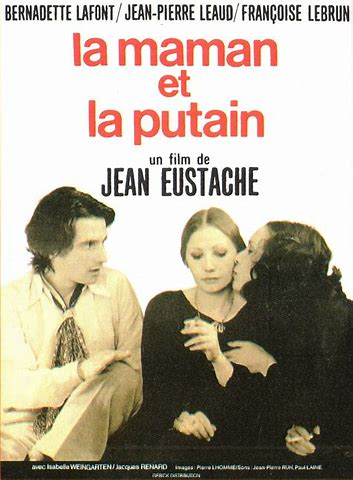Much as Jean Eustache’s La maman et la putain leaves
you staggering and drained, there’s a distinctly aspirational strand to the
film: its protagonist Alexandre (Jean-Pierre Leaud) lives a life, albeit a
low-budget, low-possession one, free of conventional constraints, with no job
or apparent source of income, yet usually with sufficient money to meet the
needs of the moment; he exercises his wits as he sees fit, with life providing
ample material (he meets an old friend in a café and a few days later sees her
picture in the paper as a wanted murderer); he lives with one woman, Marie (Bernadette
Lafont), who allows him much latitude in sexual and other matters, and pursues
another, Veronika (Francoise Lebrun), eventually ending up in bed with both of
them. It’s inevitable that this structure would hardly feel built to last, but it’s
unclear what can replace it: at times he seems preoccupied with marriage
(however unpromising the putative match), at others with the past, even in its least
savoury form (such as his and a friend’s mutual interest in a book about
Nazism); the sense of personal energy lacking any applied momentum creates a
rather unique, unsettling sense of stasis and draining, and it’s not
coincidental that Veronika, almost always clad in flowing black, has a certain
vampiric quality. The haunting aspects of Lebrun’s performance are entirely
human though: open about her promiscuity, often seeming detached from her own
behaviour, at other times hollowed out by it, culminating in an astounding,
soul-tearing monologue positing in part that sex means nothing unless it’s to
have a baby, a view partly complementary to those expressed by Alexandre, but
he’s also earlier suggested that abortion providers are the Robin Hood of our
age, and the final images of the two together, possibly on the edge of formal
union, are contorted with pessimism. In this respect and countless others, one
feels newly pummeled and penetrated by the film on each reviewing.


No comments:
Post a Comment